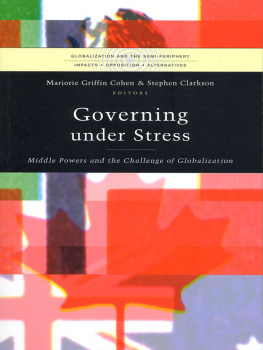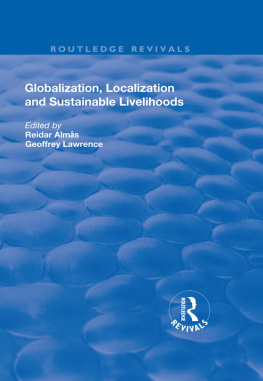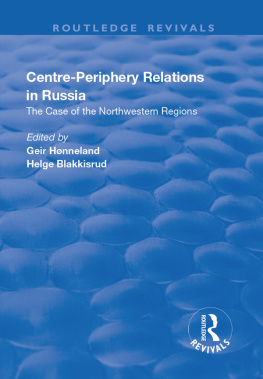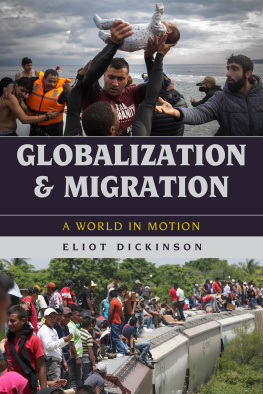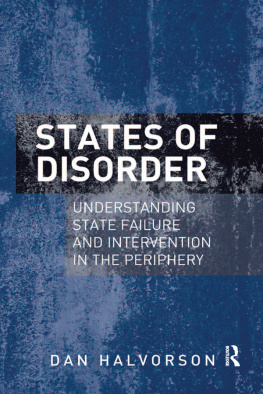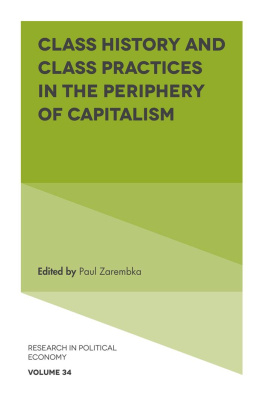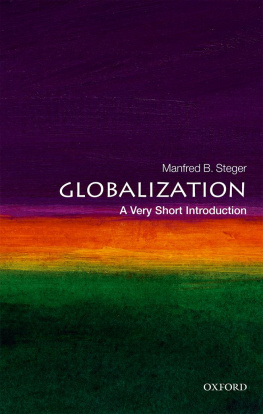
Globalization and the Semi-periphery:
Impacts, Opposition, Alternatives
Series editor: Gordon Laxer, Director, Parkland Institute,
University of Alberta, Edmonton
This series presents research from an international network of writers, all based in four carefully selected middle-ranking powers Canada, Mexico, Norway and Australia who are studying neo-liberal globalization with a view to understanding the social forces at work which may have the potential to transform it. Starting from the unique vantage point of resource-rich countries located in the semi-periphery, these scholars reject as ideologically loaded the idea of the historical inevitability of globalization, arguing instead that it is in reality a political project whose proponents are seeking a form of economic and ecological recolonization of the world.
In analysing the impacts of globalization in the semi-periphery and the potential effectiveness of sources of opposition, they seek to identify and explore emerging alternative conceptual, political and ecological paradigms. The working assumption is that the condition of semi-peripherality, whether defined in social, cultural, economic or spatial terms, provides the citizens of these countries with both the consciousness of subordination and the means of resistance and transformation unlike the countries of the core which may lack the consciousness, and the countries of the periphery which may lack the required means. The result of this ongoing inter-disciplinary research effort will be the identification of social forces and ideas that hold out the hope to humanity of political choice, and of alternative social paths not totally constrained within the current parameters of globalization.
Governing under Stress
Middle Powers and the Challenge
of Globalization
Edited by Marjorie Griffin Cohen
and Stephen Clarkson

ZED BOOKS
London & New York
Governing under Stress was first published in 2004 by Zed Books Ltd, 7 Cynthia Street, London N1 9JF, UK, and Room 400, 175 Fifth Avenue, New York, NY 10010, USA
This ebook edition was first published in 2013
www.zedbooks.co.uk
Editorial copyright Marjorie Griffin Cohen and Stephen Clarkson, 2004
Copyright individual contributors
The right of the contributors to be identified as the authors of this work have been asserted by them in accordance with the Copyright, Designs and Patents Act, 1988
Research for this book was supported by the Social Sciences and Humanities Research Council of Canada
Designed and typeset in Monotype Bembo by Illuminati, Grosmont
Cover designed by Andrew Corbett
All rights reserved
A catalogue record for this book is available from the British Library
Library of Congress Cataloging-in-Publication Data available
Canadian CIP data available from the National Library of Canada
ISBN: 978 1 84813 695 3
Contents
Gordon Laxer
Marjorie Griffin Cohen and Stephen Clarkson
Janine Brodie
yvind sterud
Dag Harald Claes and John Erik Fossum
The Rise and Fall of an Organized Fantasy: The Negotiation of Status as Periphery and Semi-periphery by Mexico and Latin America
Teresa Gutirrez-Haces
Alejandro Alvarez
Dick Bryan
Ray Broomhill
Stephen Clarkson
Marjorie Griffin Cohen
Paul Bowles
David Schneiderman
Stephen McBride and John Erik Fossum
Satoshi Ikeda
Tables and Figures
Preface
Gordon Laxer
Long before the attacks on the World Trade Center on 11 September 2001 and the Bush doctrine of pre-emptive war, the Clinton administration had linked US security interests to other countries compliance with its agenda of opening their economies to transnational corporate ownership and control. As early as 1996, Lawrence Summers, Clintons under-secretary of the Treasury, contended that globalist economic policy is the forward defense of Americas deepest security interest. Denouncing critics of the Bretton Woods consensus as separatists, Summers proclaimed our ideology, capitalism, is in ascendance everywhere. The authors of the Globalization and the Semi-periphery book series challenge this consensus from the perspective of the semi-periphery, which has produced, and continues to produce, unique insights and political standpoints.
Canada, Australia, Mexico, and Norway the semi-periphery countries in question are neither major drivers of global power, nor simply its victims. They occupy positions where they are dominant in some areas, but subordinate to core countries overall. Critics from these countries have produced significant assessments of globalization and neo-liberalism, of neo-imperialism and sovereignty, and of the concentration of transnational corporate ownership in core countries. Drawing on ideas from democratic citizens movements and critical thinkers in the semi-periphery, our volumes will present readers with a range of measures to help economies develop under democratic control, and to do so in harmony with living environments. Three main issues guide us: first, the impacts of neo-liberal globalism on societies; second, the actions citizens in the semi-periphery and their governments are taking to reshape their countries and contest globalism; and third, the alternative paradigms emerging around popular democratic proposals and practices, and the role of challengers from the semi-periphery in this shift.
This Preface highlights key arguments, concepts, and debates in the Globalization and the Semi-periphery series and this its lead volume.
A note on concepts
Our studies critically examine the paradigm which dominated the 1980s and 1990s, neo-liberal globalism, that is the norms, institutions, and laws that support corporate profitability at the expense of collective rights. Also known as structural adjustment programmes (SAPs), the Washington consensus, the Wall StreetTreasury complex, liberal productivism, and the New World Order, the prescription for every country is consistent: encourage foreign ownership, remove foreign exchange protections, slash public services, cut corporate taxes, and sell government-owned enterprises.
The neo-liberal prescription challenges democratic assumptions about the sovereignty of countries, as states turn away from citizens concerns to focus on exports and enshrine transnational corporate rights. Structural adjustment programmes in the South, international agreements such as NAFTA in the North, and international institutions such as the World Trade Organization lock countries into neo-liberal principles. Those wishing to withdraw from such agreements and create international agreements premissed on different, more democratic lines, face threats of economic sanctions by the G7 and the World Bank or even military retaliation by the US and its allies.
Neo-liberal globalism adopts as its model American and British capitalism, an ideology of governance that spreads through persuasion, diplomacy, and economic power. The writers in this series call it globalism for short. Portrayed as common sense and inevitable, this globalism is a self-serving approach that favours rich countries and rich corporations, while its internal structural contradictions eliminate the delivery of material benefits and livelihoods to many in the world. Globalisms challengers range across political boundaries from reformed capitalists and neo-traditionalists to a tide of popular-democratic movements attempting to build alternatives to capitalist societies. As the US and its allies lose the battle for ideas, they turn to force a shift that suggests the instability of globalisms hegemony. As the Globalization and the Semi-periphery series develops, some authors will explore whether the disciplinary liberalism of the 1990s is being replaced by a new kind of empire, centred on the US militaryindustrial complex and its allies.
Next page
